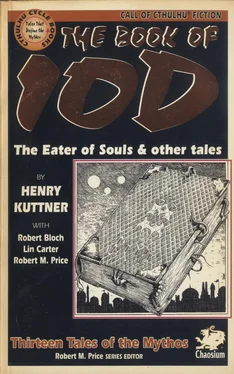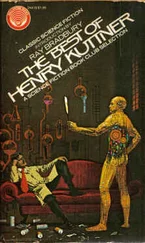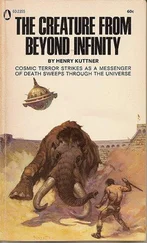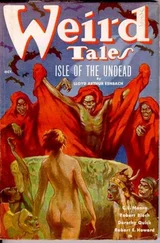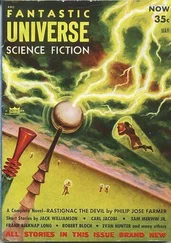Henry Kuttner - The Book of Iod
Здесь есть возможность читать онлайн «Henry Kuttner - The Book of Iod» весь текст электронной книги совершенно бесплатно (целиком полную версию без сокращений). В некоторых случаях можно слушать аудио, скачать через торрент в формате fb2 и присутствует краткое содержание. Год выпуска: 1995, ISBN: 1995, Издательство: Chaosium, Жанр: Ужасы и Мистика, на английском языке. Описание произведения, (предисловие) а так же отзывы посетителей доступны на портале библиотеки ЛибКат.
- Название:The Book of Iod
- Автор:
- Издательство:Chaosium
- Жанр:
- Год:1995
- ISBN:9781568820453
- Рейтинг книги:5 / 5. Голосов: 1
-
Избранное:Добавить в избранное
- Отзывы:
-
Ваша оценка:
- 100
- 1
- 2
- 3
- 4
- 5
The Book of Iod: краткое содержание, описание и аннотация
Предлагаем к чтению аннотацию, описание, краткое содержание или предисловие (зависит от того, что написал сам автор книги «The Book of Iod»). Если вы не нашли необходимую информацию о книге — напишите в комментариях, мы постараемся отыскать её.
The Book of Iod — читать онлайн бесплатно полную книгу (весь текст) целиком
Ниже представлен текст книги, разбитый по страницам. Система сохранения места последней прочитанной страницы, позволяет с удобством читать онлайн бесплатно книгу «The Book of Iod», без необходимости каждый раз заново искать на чём Вы остановились. Поставьте закладку, и сможете в любой момент перейти на страницу, на которой закончили чтение.
Интервал:
Закладка:
By noon I had returned to the house more mystified than before. I decided my answer, if answer there were, must be hidden in my uncle’s books, the very books I had almost consigned to the flames the previous night. There I read of fantastic entities with names like Leviathan, Demogorgon, Azathoth, Zeemebooch. Somehow I knew that it was of these very beings I had dreamt last night! Just what kind of researches had Uncle Absalom been engaged in? And, worse yet—what kind of deeds ?
III.
Once more my thoughts were interrupted, this time by a strange sound—below me. The subcellar! In my absorption with my uncle’s hellish books I had completely forgotten it. Following the sound as best I could (it was now dying away), I found my way down to the subterranean chamber. By now there were only ringing echoes, which might have been those of a beast’s death agonies. But if the sound were no longer there to greet me, the sub-basement was filled with an equally horrifying stench, like that of a slaughterhouse. For scattered all about, almost concealing the traces of chalk circles and pentacles on the stone floor, were the carcasses of one or more cows, or—bulls?
The cover of night found me two miles further into the countryside, climbing over the rail fence of the Tophet Cemetery. You see, having returned to the pile of occult volumes in the study, I had searched them anew, doubly desperate for some clue. And in an underscored verse from The Book of Iod , I believed I had found it. If my conjectural translation were anywhere near the mark, I felt assured that the end of the whole horrific business lay here in my uncle’s final resting place.
After some searching I found the grave and set to work, swallowing my own disgust and self-revulsion as I did so. Finally, the wood of the coffin came into view. With some surprise I noticed that the casket had been laid so that the grave marker rose directly over the middle of the box, not at its head, as was the usual arrangement. Thus, to unearth the whole length of the casket, I had to displace the gravestone. The stone itself was of curious design, having neither the basic rectangular shape nor that of a cross, but rather of a five-pointed star, with some sort of pattern carved upon it. With the marker thus out of the way, freeing the coffin was comparatively simple.
I paused, momentarily startled by a swelling crescendo of whippoorwills that seemed to explode out of nowhere. Regaining as much composure as the surroundings allowed, I made ready to uncover the corpse. But I was not prepared for the sight that greeted me upon opening the box. For my uncle’s form was just as I had seen in the portrait. He seemed not dead, certainly not decayed, but merely asleep. Yet I had but a glimpse of him in this state. The coffin lid had come open only with difficulty, and I was forced to wrench it free with one great effort. As the lid fell all the way to the ground, the hinges shattered, as did the star-shaped stone, upon which it fell. At this, my Uncle Absalom’s eyes flew open in an expression of sheer terror, matched instantly by my own, as I beheld what followed. For his formerly inert form began to erupt in bloody furrows, rent and mutilated by unseen talons!
The authorities at this place where I am now confined accuse me of desecrating the corpse, but I know only too well that Uncle Absalom’s dismemberment was the work of whatever eldritch entity my idle mouthing of an ancient incantation had released, and which my clumsiness had given access to my uncle’s hitherto protected sleeping form!
Dead of Night
by Lin Carter
Anton Zamak was the name of an occult specialist Lin Carter created in his early novel Curse of the Black Pharaoh. There he was a somewhat colorless figure. Many years later Carter took him out of the mothballs for a pair of stories, “Dead of Night” and “Perchance to Dream. ” Lin has placed Zamak’s sanctum sanctorum, not in Greenwich Village, like the home of Lee and Ditko’s Dr. Strange, whom he so much resembles, but rather in the fictitious River Street district in which Robert E. Howard set his series of Steve Harrison detective stories, including "Names in the Black Book. ” There, in the swirling mists of Oriental intrigue and occultist conspiracy, anything might lurk, even the Cthulhu Mythos.
Many of the artifacts and curios adorning Zamak's residence corresponded to the decorations of Lin’s own apartment. (It was there we sat one Saturday afternoon when Lin proudly told S. T. Joshi and myself the planned denouement of “Dead of Night”, apparently oblivious of the similarity, as Joshi at once pointed out, of his tale to Lovecraft’s “The Haunter of the Dark.” He seemed unmoved by the comparison.) The wooden mask of Yama/Yamath, for instance, is exactly as Lin describes it. It now sits malevolently perched on the wall of my study.
First publication: Crypt of Cthulhu # 54, 1988.
1. Number Thirteen
Below Fourteenth Street, between Chinatown and the river, extends a disreputable region of cryptic, winding alleys, crumbling tenements, rotting wharves and abandoned warehouses slumping in decay. Here dwell the human dregs of a thousand Eastern ports: Hindus, Japanese, Arabs, Chinamen, Levantines, Turks, Portuguese. Once these dark and sinister side- streets and fetid alleyways were the battlefield of the Tong wars; that was in the days of the legendary detective Steve Harrison, who single-handedly dealt out the white man’s law and the white man’s justice along River Street.
Those days are long since gone—not that River Street has changed in any noticeable way. Urban renewal has yet to touch the decaying tenements, nor has the law managed to close down the dives and dope dens and honky-tonks. Neither has the furtive, polyglot Asian populace altered, and few could guess what drugs are trafficked in these dark rooms or what crimes of violence and greed are done in those black and garbage-choked alleys—
Of all these matters, Dona Teresa de Rivera was all too uncomfortably aware, and with every block her taxi carried her deeper into the tangled maze of filthy slums, her discomfiture grew. Only the urgency of her mission goaded her into venturing into this ill-famed corner of the city, far from the quiet residential streets and fine cafes which were her accustomed haunts.
Fog came drifting in from the riverfront to wind its clammy tendrils about walls of rotting old brick, and to blur the dim luminance of the infrequent street lights.
The cab pulled up before the yawning mouth of a black alley off Levant Street, and the gloom that thickly shadowed the narrow, cobbled lane was feebly dispelled by a single light which burned above a doorway only a few steps from the street.
“That’s it, lady. Number Thirteen China Alley,” announced the driver, cocking his thumb at the dim light. Privately, the cabby wondered what the handsome young Spanish woman could possibly want in this dangerous neighborhood. She had money, that was obvious: No woman wore an expensive frock with such careless elegance unless she had wealth, breeding and taste.
“Are you quite certain this is the address?” the girl faltered.
"Yes, ma’am, Number Thirteen China Alley, between Levant and River Streets. That’ll be six seventy-five.” Dona Teresa gave the driver a ten dollar bill and declined to accept any change.
“How do I get back from here?”
He handed her a card. “Call the garage; they’ll send a cab to pick you up.”
With uneasiness clutching at her heart, the young woman left the cab, which hurriedly drove off, fog swirling in its wake. She entered the dark mouth of the alley, cautiously feeling her way on the greasy cobbles. The light which was her goal burned above the single door of a small, narrow, two-story building, shouldered to either side by larger tenements. The small house would have looked long abandoned, had it not been for that light above the door. Its walls of crumbling brick were black with generations of grime, and the windows peered blindly like cataract-infested eyes, their panes dim and smudged with greasy soot. Dona Teresa shivered and drew her fur wrap more closely about her slim shoulders against the chill, damp air from the river.
Читать дальшеИнтервал:
Закладка:
Похожие книги на «The Book of Iod»
Представляем Вашему вниманию похожие книги на «The Book of Iod» списком для выбора. Мы отобрали схожую по названию и смыслу литературу в надежде предоставить читателям больше вариантов отыскать новые, интересные, ещё непрочитанные произведения.
Обсуждение, отзывы о книге «The Book of Iod» и просто собственные мнения читателей. Оставьте ваши комментарии, напишите, что Вы думаете о произведении, его смысле или главных героях. Укажите что конкретно понравилось, а что нет, и почему Вы так считаете.
